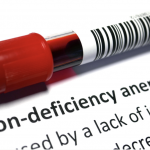The Crucial Role of Vitamin D for Children’s Health

What happens when children lack vitamin D?
Among the many essential nutrients, vitamin D stands out as a crucial component for the optimal growth and development of children. This mighty nutrient plays a multifaceted role, supporting immune function, gut health, hormone regulation, glucose metabolism, and skeletal health. Vitamin D deficiencies and suboptimal levels are common amongst children, which is why I want to share more information on why it’s so important to boost up vitamin D levels when we find out they’re low!
Vitamin D and Immune Function
Vitamin D plays a huge role in supporting children’s immune function. Vitamin D receptors are present in several different types of immune cells, indicating its importance in immune regulation (1). Vitamin D helps modulate both the innate (first line of defence, preventing bag bugs from coming into the body) and adaptive immune responses (second line of defence, destroying bad bugs once they’re inside the body). It enhances the function of natural killer (NK) cells, a kind of immune cell that kills tumour cells and cells that have become infected with a virus, preventing the spread of illnesses throughout the body (1). Additionally, vitamin D stimulates the production of antimicrobial peptides, which help fight off invading pathogens (3).
Studies have shown that children with sufficient vitamin D levels have a reduced risk of respiratory illnesses, such as the colds, flu, and more severe respiratory tract infections (4). Adequate vitamin D levels have also been associated with a lower incidence of asthma, possibly by helping to reduce inflammation in the airways (5). Vitamin D’s immune boosting properties help reduce the risk and severity of respiratory infections, helping children to stay ‘well’ when they are sick, and recover quickly from illnesses.
Vitamin D is also involved in immune system regulation and has been associated with a decreased risk of autoimmune diseases in children. Autoimmune diseases occur when the immune system mistakenly attacks healthy cells and tissues. Vitamin D plays a role in regulating immune responses and may help prevent the development of autoimmune conditions such as type 1 diabetes, multiple sclerosis, and inflammatory bowel disease (6). By promoting immune balance, vitamin D contributes to reducing the likelihood of chronic, lifelong conditions.
Vitamin D and Gut Health
The gut plays a crucial role in overall health, and vitamin D contributes significantly to maintaining a healthy gut microbiome in children. Vitamin D helps in the synthesis and maintenance of tight junction proteins, which are essential for intestinal barrier integrity (7). These proteins help form tight connections between the cells lining the intestinal wall, preventing harmful substances such as toxins, bacteria, and undigested food particles from entering the bloodstream (7). By supporting gut health, vitamin D promotes optimal digestion and nutrient absorption. A healthy gut allows for efficient breakdown and absorption of nutrients from the food children eat, ensuring they receive the necessary vitamins, minerals, and other essential nutrients for growth and development (8).
Vitamin D has also been found to influence the gut microbiota, the trillions of beneficial bacteria residing in the gastrointestinal tract (9). Vitamin D deficiency is associated with changes in the gut microbiome, such as reduced microbial diversity and imbalances in specific bacterial strains (9). A diverse and balanced gut microbiota has been associated with a reduced risk of immune mediated disorders and allergies in children (10). Whereas dysbiosis may contribute to gastrointestinal disorders such as inflammatory bowel disease, irritable bowel syndrome, and increased susceptibility to infections.
Vitamin D and Hormone Health
One important aspect of vitamin D’s impact on hormone health is its involvement in the synthesis and release of insulin. Vitamin D is involved in the regulation of insulin secretion and sensitivity (11). Adequate vitamin D levels reduce the risk of insulin resistance (12), suggesting a link between vitamin D deficiency and an increased risk of type 1 diabetes (13). By supporting proper insulin function, vitamin D helps maintain stable blood sugar levels and reduces the risk of metabolic disorders in children.
Vitamin D’s role in glucose metabolism supports learning, concentration and contributes to overall energy levels. Stable blood sugar levels are essential for maintaining energy, mood and behaviour throughout the day. When blood sugar levels are balanced, children can avoid energy (and emotional) crashes and maintain sustained energy levels for physical activities, cognitive function, and learning at school. By improving insulin sensitivity, vitamin D helps prevent spikes in blood sugar levels after meals and promotes better glucose control.
Vitamin D is also involved in the production of serotonin, a neurotransmitter that affects mood regulation and emotional wellbeing. Serotonin plays a crucial role in brain function, influencing mood, sleep, appetite, and other physiological processes. Vitamin D receptors are present in areas of the brain involved in serotonin synthesis and regulation (14). A deficiency of vitamin D is associated with an increased risk of mood disorders such as depression and anxiety in children (15). By participating in serotonin production, vitamin D may help support mental health and contribute to a positive emotional state in children.
Vitamin D and Bone Health
Vitamin D is well known for promoting strong and healthy bones in children. It helps the body to absorb calcium and phosphorus, minerals that are essential for proper bone development (16). Sufficient vitamin D levels prevent weak and brittle bones by supporting bone mineralisation. In doing so, vitamin D also contributes to the prevention of fractures in children. Adequate vitamin D levels support bone density and strength, reducing the risk of damage and promoting lifelong skeletal health (17).
Teeth are also very dependent on vitamin D for optimal development in utero, but also to maintain enamel quality throughout childhood. Vitamin D aids in the absorption of calcium, which is crucial for tooth mineralisation and the prevention of dental problems such as tooth decay and the breakdown of enamel (18). A deficiency in vitamin D can actually delay the eruption of teeth (late teething). Adequate vitamin D levels contribute to the development of strong teeth and may even shorten the duration of teething in early childhood.
How much Vitamin D should a child have?
The recommended daily intake of vitamin D for children depends on their age. Generally speaking;
- Infants (0-12 months): require a daily vitamin D intake of 400 international units (IU), whether they are exclusively breastfed or formula fed. This is particularly important if there was a vitamin D deficiency during pregnancy, or if there was a premature birth.
- Children and Adolescents (1-18 years): require a daily vitamin D intake of 600-1000 IU to prevent a vitamin D deficiency. This can be obtained from a combination of sunlight exposure, dietary sources, and supplementation if necessary.
It’s important to note that these recommendations are general guidelines, and individual needs may vary based on factors such as current vitamin D levels (kids who are currently deficient will require higher supplemental doses to correct the deficiency), geographical location, skin pigmentation, and sun exposure. Children with specific health conditions or at higher risk of vitamin D deficiency may require higher doses of supplementation depending on other aspects of their health.
How to increase Vitamin D levels naturally
To ensure sufficient vitamin D levels, it is essential to strike a balance between safe sun exposure and dietary sources. Sunlight is a natural and significant source of vitamin D synthesis in the body, but it is important to protect children from excessive sun exposure and follow appropriate sun safety guidelines. Additionally, incorporating vitamin D rich foods such as fatty fish, eggs, and mushrooms into their diet can contribute to meeting their nutritional needs.
Should you review with a naturopath?
Before jumping straight to a vitamin D supplement, it is crucial to consult with a healthcare professional to determine if your child actually needs vitamin D supplementation, how much they require each day and what form of vitamin D is best for their individual needs. If you’re unsure, or you would like a second opinion from a children’s health naturopath, give us a buzz!
References
- Hewison M. Vitamin D and the immune system: new perspectives on an old theme. Endocrinol Metab Clin North Am. 2010;39(2):365-379. doi:10.1016/j.ecl.2010.02.010
- Gombart AF, Borregaard N, Koeffler HP. Human cathelicidin antimicrobial peptide (CAMP) gene is a direct target of the vitamin D receptor and is strongly up-regulated in myeloid cells by 1,25-dihydroxyvitamin D3. FASEB J. 2005;19(9):1067-1077. doi:10.1096/fj.04-3284com
- Martineau AR, Jolliffe DA, Greenberg L, et al. Vitamin D supplementation to prevent acute respiratory tract infections: systematic review and meta-analysis of individual participant data. BMJ. 2017;356:i6583. doi:10.1136/bmj.i6583
- Bener A, Ehlayel MS, Tulic MK, Hamid Q. Vitamin D deficiency as a strong predictor of asthma in children. Int Arch Allergy Immunol. 2012;157(2):168-175. doi:10.1159/000327294
- Munger KL, Levin LI, Hollis BW, Howard NS, Ascherio A. Serum 25-hydroxyvitamin D levels and risk of multiple sclerosis. JAMA. 2006;296(23):2832-2838. doi:10.1001/jama.296.23.2832
- Nistala K, Adams S, Cambrook H, et al. Th17 plasticity in human autoimmune arthritis is driven by the inflammatory environment. Proc Natl Acad Sci U S A. 2010;107(33):14751-14756. doi:10.1073/pnas.1003852107
- 7. Kong J, Zhang Z, Musch MW, et al. Novel role of the vitamin D receptor in maintaining the integrity of the intestinal mucosal barrier. Am J Physiol Gastrointest Liver Physiol. 2008;294(1):G208-G216. doi:10.1152/ajpgi.00398.2007
- Dehlink E, Baker AH, Yen EH, et al. Inadequate vitamin D status in malabsorption-prone pediatric gastrointestinal disease. J Pediatr Gastroenterol
- Bashir M, Prietl B, Tauschmann M, et al. Effects of high-dose vitamin D3 supplementation on gut microbiome and metabolome in overweight and obese adults. Eur J Nutr. 2016;55(4):1479-1489. doi:10.1007/s00394-015-0955-5
- Round JL, Mazmanian SK. The gut microbiota shapes intestinal immune responses during health and disease. Nat Rev Immunol. 2009;9(5):313-323. doi:10.1038/nri2515
- Pittas AG, Lau J, Hu FB, Dawson-Hughes B. The role of vitamin D and calcium in type 2 diabetes. A systematic review and meta-analysis. J Clin Endocrinol Metab. 2007;92(6):2017-2029. doi:10.1210/jc.2007-0298
- Forouhi NG, Luan J, Cooper A, Boucher BJ, Wareham NJ. Baseline serum 25-hydroxy vitamin d is predictive of future glycemic status and insulin resistance: the Medical Research Council Ely Prospective Study 1990-2000. Diabetes. 2008;57(10):2619-2625. doi:10.2337/db08-0593
- Hyppönen E, Läärä E, Reunanen A, Järvelin MR, Virtanen SM. Intake of vitamin D and risk of type 1 diabetes: a birth-cohort study. Lancet. 2001;358(9292):1500-1503. doi:10.1016/S0140-6736(01)06580-1
- Eyles DW, Smith S, Kinobe R, Hewison M, McGrath JJ. Distribution of the vitamin D receptor and 1α-hydroxylase in human brain. J Chem Neuroanat. 2005;29(1):21-30. doi:10.1016/j.jchemneu.2004.08.006
- 15. Khoraminya N, Tehrani-Doost M, Jazayeri S, Hosseini A, Djazayery A. Therapeutic effects of vitamin D as adjunctive therapy to fluoxetine in patients with major depressive disorder. Aust N Z J Psychiatry. 2013;47(3):271-275. doi:10.1177/0004867412470037
- Norman AW. From vitamin D to hormone D: fundamentals of the vitamin D endocrine system essential for good health. Am J Clin Nutr. 2008;88(2):491S-499S. doi:10.1093/ajcn/88.2.491S
- Winzenberg T, Powell S, Shaw KA, et al. Effects of vitamin D supplementation on bone density in healthy children: systematic review and meta-analysis. BMJ. 2011;342:c7254. doi:10.1136/bmj.c7254
- Moynihan P, Petersen PE. Diet, nutrition and the prevention of dental diseases. Public Health Nutr. 2004;7(1A):201-226. doi:10.1079/PHN2003589






